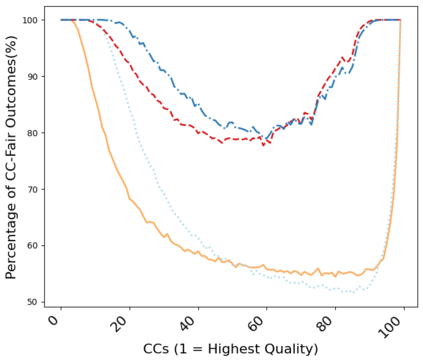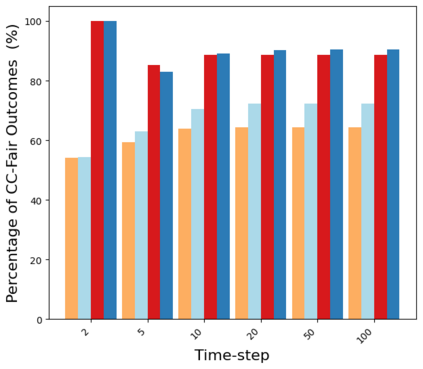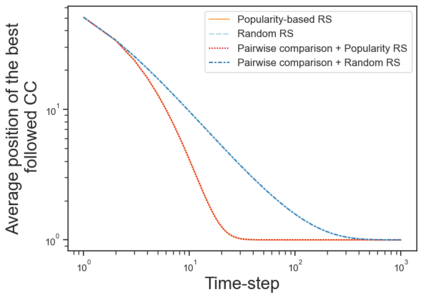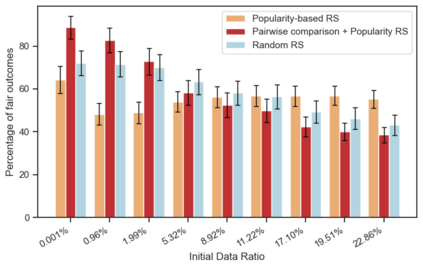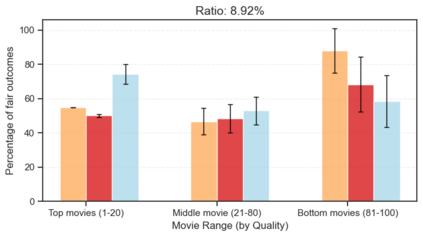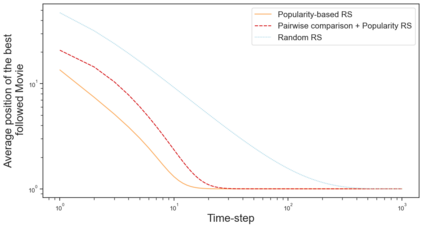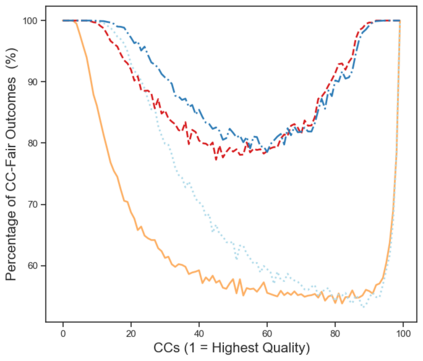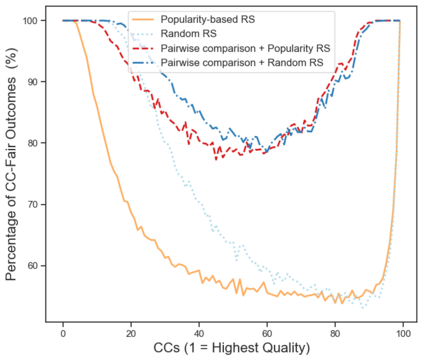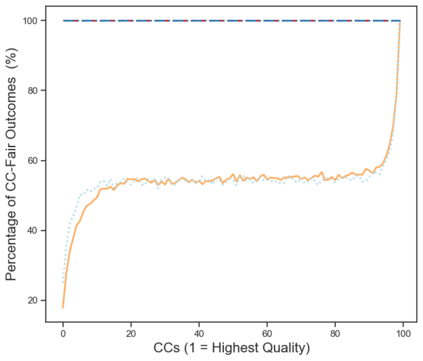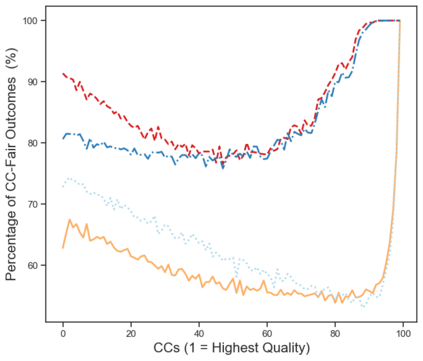Social media platforms provide millions of professional content creators with sustainable incomes. Their income is largely influenced by their number of views and followers, which in turn depends on the platform's recommender system (RS). So, as with regular jobs, it is important to ensure that RSs distribute revenue in a fair way. For example, prior work analyzed whether the creators of the highest-quality content would receive the most followers and income. Results showed this is unlikely to be the case, but did not suggest targeted solutions. In this work, we first use theoretical analysis and simulations on synthetic datasets to understand the system better and find interventions that improve fairness for creators. We find that the use of ordered pairwise comparison overcomes the cold start problem for a new set of items and greatly increases the chance of achieving fair outcomes for all content creators. Importantly, it also maintains user satisfaction. We also test the intervention on the MovieLens dataset and investigate its effectiveness on platforms with interaction histories that are currently unfair for content creators. These experiments reveal that the intervention improves fairness when deployed at early stages of the platform, but the effect decreases as the strength of pre-existing bias increases. Altogether, we find that the ordered pairwise comparison approach might offer a plausible alternative for both new and existing platforms to implement.
翻译:暂无翻译


